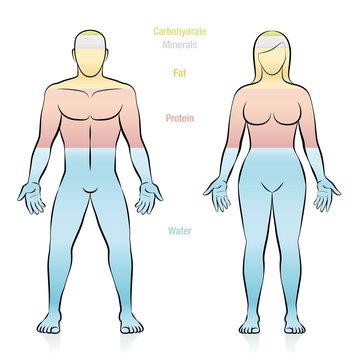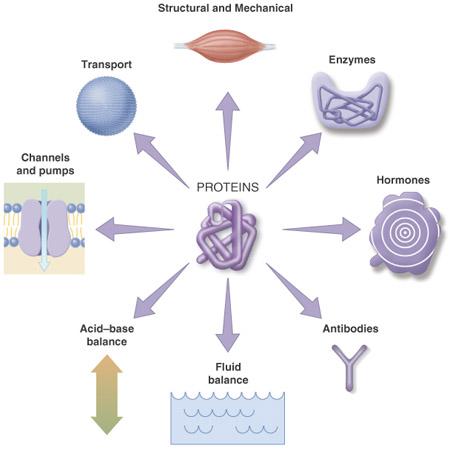From conversations with my patients, I realized that often people do not delve into the essence of things or do not even try to understand their essence, but accept them as they are.

The other day, when talking with a patient, the topic of proteins was raised. In the context of this topic, which is discussed so much by doctors, nutritionists and almost everyone, I asked him: “What is the importance of proteins for the human body?” He did not think long and replied: “To gain muscle.”
The answer is correct. But is this the only role of proteins for our body? Really?
The benefits of protein are not limited to muscle growth. Proteins are nutrients vital for the human body. They are the main building material. Muscles, blood vessels, tissues of internal organs, blood cells, antibodies, enzymes and hormones – all this is in our body thanks to proteins.
Proteins perform many different functions in the body. Let's see which ones are the most important!
- Building function. All cells, membranes and extracellular structures are based on protein. No protein – no organic life on earth, at least in the form in which we are accustomed to perceive life.
- Tissue growth. The body needs protein to grow and maintain tissues. They make up the densest tissues – muscles, hair, supporting tissues. Proteins are also always used in the formation of cell membranes.
- Ensuring movement. An important sign of life is mobility, which is based on the function of proteins such as actin and myosin – muscle proteins. As a result of the interaction of proteins, there is movement in space, contraction and relaxation of the heart, and movement of other internal organs.
- Pathogen protection. Proteins help form immunoglobulins or antibodies to fight infection. When a pathogen enters the body, the immune system produces protein antibodies. Without them, bacteria and viruses could freely multiply and move around the body, causing various pathogenic processes and provoking the development of diseases.
- Biochemical reactions. Many chemical processes take place in our body, in which enzymes play a special role. Enzymes are proteins designed to speed up various biochemical reactions. They accelerate the metabolic process and help achieve balance. These natural biocatalysts are involved in the process of digestion of food, the functioning of the central nervous system and the stimulation of new cell growth.
- Hormonal regulation. The main instrument of hormonal regulation of various body processes are hormones that provide communication between cells, tissues and organs. Proteins make up most of the hormones such as insulin, glucagon, the antidiuretic hormone vasopressin, hormones produced by the pituitary gland (growth hormone, follicle-stimulating hormone, prolactin) and others.

- Tissue structure. An important function of proteins in the body is the formation of cell structures. Proteins repair tissues, provide support and give elasticity and strength. There are two classic examples of this. First, collagen, which is found in bones and tendons. Second, keratin, which is found in hair, skin and nails.
- pH regulation. The body needs a constant pH, as even a small change can be harmful or potentially fatal. With the help of proteins, an appropriate pH is maintained – proteins regulate the concentrations of acids and bases in the blood.
- Transport and storage of nutrients. Some proteins are able to attach and transport various substances through the blood from one organ to another and inside the cell. So, proteins transport lipids, carbohydrates, metal ions, oxygen and carbon dioxide, some vitamins, hormones, etc. Hemoglobin, for example, carries oxygen, delivering it to the most remote corners of the body, it also transports carbon dioxide.
Which of these protein functions did you know about before reading the email? Are you getting enough protein to keep your body functioning properly?
If you eat animal products such as meat, fish, eggs, or dairy every day, you are probably getting enough protein. If you follow a plant-based diet, it will be harder for you to get the essential amino acids your body needs, but not impossible. If you want to know which plant-based proteins are the best, don't miss my next emails.
